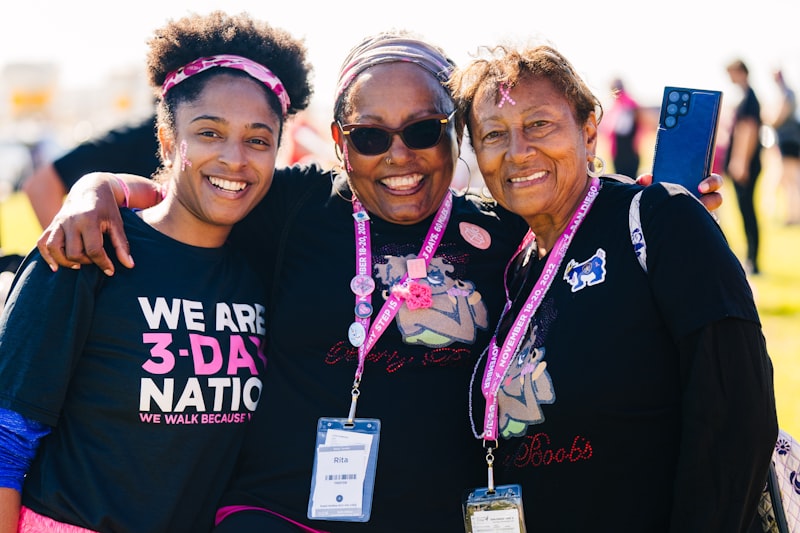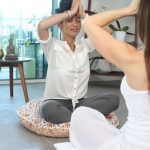Do you ever feel like you’re on autopilot, navigating through life without truly understanding yourself? Enhancing self-awareness can be a game-changer, helping you gain clarity and purpose in your actions. Let’s dive into effective methods that can sharpen this essential skill.
Self-reflection stands as a cornerstone of self-awareness. Taking time to ponder on your thoughts, emotions, and reactions can unveil patterns and motivations that guide your behavior. Journaling is a powerful tool here, offering a private space to unravel your inner workings.
Mindfulness practices also play a crucial role. By staying present in the moment, you heighten your awareness of thoughts and sensations without judgment. Simple exercises like deep breathing or mindful walking can anchor you to the now, fostering a deeper connection with yourself.
Seeking feedback from others can provide invaluable insights. Honest conversations with trusted friends or mentors can offer perspectives you might have missed. Constructive criticism, though sometimes challenging, can be a catalyst for growth and self-awareness.
Another effective method involves exploring your values and beliefs. Understanding what truly matters to you helps align your actions with your core principles. This alignment brings a sense of authenticity and clarity in decision-making.
Lastly, practicing self-compassion is essential. Being kind to yourself in moments of struggle or failure nurtures resilience and self-awareness. It allows you to acknowledge your imperfections while striving for personal growth.
Enhancing self-awareness is a journey worth embarking on. By integrating self-reflection, mindfulness, feedback, values exploration, and self-compassion into your routine, you can cultivate a deeper understanding of yourself and lead a more intentional life.
Mindful Mirror: How Reflective Practices Boost Self-Awareness
Imagine this: you stand in front of a mirror, looking at your reflection. What do you see? Beyond the physical appearance, a mirror reflects back your emotions, thoughts, and deeper self-perceptions. It’s like a dialogue with yourself, where every glance offers a chance for introspection.
Reflective practices involve more than just looking at yourself. They encourage you to observe without judgment, to notice how you feel and what thoughts arise. This process cultivates mindfulness, the art of being present in the moment without getting caught up in self-criticism or distraction.
When you engage in mindful reflection with a mirror, you create a space for honesty and acceptance. You might ask yourself questions like, “How do I feel today?” or “What is my body language saying about my emotions?” These inquiries prompt a deeper connection with yourself, fostering emotional intelligence and empathy.
Moreover, using a mindful mirror can help you track personal growth over time. As you revisit your reflections, you may notice changes in your attitudes, perceptions, and even physical expressions. It’s like watching a story unfold—one where you are both the protagonist and the narrator.
In essence, the practice of mindful reflection is about self-discovery and empowerment. It’s a reminder that self-awareness is not static but evolves with each moment of introspection. By incorporating reflective practices into your daily routine, you embark on a journey of understanding yourself more fully and navigating life with greater clarity.
Next time you glance into a mirror, consider the reflection as more than what meets the eye. It’s a portal to your inner world, offering insights that can shape your personal and professional relationships. Embrace the power of reflection and see how it transforms your journey towards self-awareness.
Journaling Your Journey: Unveiling the Power of Self-Reflection
Ever wondered how some people seem to navigate life’s challenges with clarity and purpose? The secret might just be in a simple, yet profound practice: journaling. Let’s dive into how journaling can unveil the power of self-reflection and transform the way you approach your daily life.
Imagine your mind is a vast landscape, filled with thoughts, emotions, and experiences. Journaling is like having a map that helps you navigate this terrain. It’s not just about jotting down what happened during the day; it’s about delving deeper into your thoughts and feelings. When you take the time to put pen to paper (or fingers to keyboard), you’re creating a space for introspection.
Think of journaling as a conversation with yourself. It’s a chance to pause amidst the hustle and bustle of life and ask yourself important questions. How do I feel today? What am I grateful for? What challenges did I overcome? By asking these questions and writing down your answers, you gain clarity and insight into your own mind.
Moreover, journaling serves as a record of your personal growth journey. Just as a photographer captures moments in time, journaling allows you to capture moments of your inner life. When you look back at entries from weeks, months, or even years ago, you can see how far you’ve come. It’s a testament to your resilience, growth, and evolution as a person.
In essence, journaling is a powerful tool for self-discovery and self-expression. It’s a safe space where you can be completely honest with yourself, free from judgment or expectations. Whether you’re navigating a major life transition or simply trying to understand your emotions better, journaling can provide clarity and perspective.
So, why not give it a try? Grab a notebook or open a blank document on your computer. Set aside just a few minutes each day to jot down your thoughts. You might be surprised by what you discover about yourself along the way.
The Zen of Meditation: Harnessing Inner Awareness for Growth

Meditation isn’t just a practice; it’s a doorway to understanding yourself deeply. Imagine diving into the depths of your mind like a fearless explorer, uncovering hidden treasures of wisdom and clarity. That’s exactly what meditation offers—an opportunity to observe your thoughts without judgment, to embrace the present moment with open arms.
At its core, meditation teaches us the art of mindfulness. It’s like polishing a rough gemstone until it gleams with brilliance. By focusing your attention inward, you cultivate a heightened sense of awareness that extends beyond the chaos of everyday life. This awareness isn’t about escaping reality but about embracing it fully, seeing the beauty in every moment, whether it’s the gentle sway of trees or the rhythmic beating of your own heart.
Have you ever felt overwhelmed by stress or uncertainty? Meditation acts as a sanctuary, a place where you can find peace amidst the storm. It’s your personal retreat—a quiet space where worries dissipate like morning mist, leaving behind a profound sense of calm.
Just as a gardener tends to delicate flowers, meditation nurtures your inner garden of thoughts and emotions. Through regular practice, you learn to weed out negativity and nurture positivity. It’s a transformative process where each breath is like a seed planted in the fertile soil of your mind, growing into mindfulness and resilience.
From Insight to Action: Using Feedback Loops for Self-Discovery
Imagine yourself as a painter standing before a canvas. You start with a few brushstrokes, step back, and assess your work. You notice the colors blending beautifully, but something feels off. That feeling is your feedback loop in action – the continuous cycle of creation, evaluation, and adjustment that drives improvement.

In personal development, feedback loops work similarly. They are mechanisms that allow you to receive input on your actions and behaviors, process that information, and make necessary adjustments to reach your goals. It’s like having a mirror that reflects not just your appearance but also your actions, thoughts, and progress.
Think about it this way: When you set a goal, such as improving your public speaking skills, you take action by practicing a speech. After delivering it, you gather feedback from your audience – maybe on your tone, clarity, or engagement. This feedback informs your next steps – perhaps practicing more on voice modulation or storytelling techniques.

Feedback loops are not just about external feedback; they also involve your internal dialogue. As you reflect on the feedback received, you tune into your thoughts and emotions. This introspection is crucial for understanding your strengths, weaknesses, and areas for growth.
Self-discovery through feedback loops is a journey of continuous improvement. It’s about embracing the process of learning from each experience, whether positive or constructive. Each loop brings you closer to uncovering your true potential and refining your path forward.
By harnessing feedback loops effectively, you can turn insights into actionable steps for personal growth. Whether in career development, relationships, or skill-building, these loops guide you towards becoming the best version of yourself. So, the next time you receive feedback – embrace it, analyze it, and use it to propel yourself further on your journey of self-discovery.
Emotional Intelligence Unleashed: Strategies for Self-Awareness
Self-awareness, simply put, is the ability to recognize and understand our own emotions, thoughts, and behaviors. It’s like having a personal radar that picks up on what makes us tick and how we impact others. Imagine being in tune with your emotions to the extent that you can navigate through life’s ups and downs with grace and understanding.
One effective strategy to enhance self-awareness is mindfulness. By practicing mindfulness, we cultivate a non-judgmental awareness of our thoughts and feelings in the present moment. It’s akin to stepping back and observing ourselves from a distance, without getting swept away by our emotions. This practice not only deepens our understanding of ourselves but also sharpens our ability to respond thoughtfully rather than react impulsively.
Another valuable approach is journaling. Writing down our thoughts and emotions can be incredibly revealing. It’s a bit like having a heart-to-heart conversation with ourselves on paper. Through journaling, we can uncover recurring patterns, triggers, and even hidden desires that shape our reactions and decisions.
Moreover, seeking feedback from others can provide precious insights into aspects of ourselves that we might not see. Trusted friends, mentors, or even professional coaches can offer perspectives that help us gain a more complete picture of our strengths and areas for growth.
Ultimately, the journey to enhancing self-awareness through emotional intelligence is a deeply personal one. It requires patience, curiosity, and a willingness to explore the inner workings of our minds and hearts. By embracing these strategies—mindfulness, journaling, and seeking feedback—we can embark on a path toward greater self-awareness, enriching our lives and relationships along the way. Emotional intelligence unleashed indeed!
Exploring Identity: Cultural and Personal Factors in Self-Awareness
What makes us who we are? The concept of identity is a complex interplay of cultural influences and personal experiences that shape our sense of self-awareness. It’s like weaving a tapestry where threads of heritage, beliefs, and values intertwine with individual reflections and life events, creating a unique mosaic that defines us.
Cultural identity forms a foundational part of our being. It encompasses the traditions, customs, and norms passed down through generations within a community or society. Imagine it as a rich tapestry woven with threads of language, cuisine, rituals, and shared histories. These elements not only provide a sense of belonging but also serve as a compass guiding our interactions and perceptions of the world.
Personal identity, on the other hand, is forged through our personal journey. It reflects the unique blend of our experiences, aspirations, and choices. Picture it as a canvas where each brushstroke represents a significant life event or a pivotal decision that shapes our character. From childhood influences to career paths and relationships, every experience adds layers to our evolving sense of self.
The interaction between cultural and personal identity is dynamic and profound. Our cultural background provides a framework through which we interpret our experiences, while our personal insights and decisions contribute to the evolution of our cultural heritage. This interplay fosters a deeper understanding of who we are, allowing us to navigate the complexities of modern life while staying rooted in our cultural roots.
Self-awareness emerges as the cornerstone of this exploration. It involves introspection and a conscious understanding of how our cultural and personal identities intersect and influence our thoughts, emotions, and behaviors. It’s akin to peeling back layers of an onion, revealing deeper insights into our motivations and beliefs.
The Power of Perspective: Seeing Yourself Through Others’ Eyes
Imagine for a moment looking through a different set of lenses, not your own, but those of someone else. What would they see? Would it match how you see yourself? Often, we get so caught up in our own self-perception that we forget there are myriad ways others perceive us. Their viewpoints are shaped by interactions, behaviors, and even non-verbal cues that we may not consciously notice.
Perspective is like a multifaceted gem; it reflects different angles of your personality, actions, and presence. Sometimes, what stands out to others might be unexpected—your quiet strength, your infectious enthusiasm, or your unwavering empathy. These insights can be eye-opening, offering a mirror that reveals aspects of yourself you might not have fully recognized.
Consider this: just as a camera captures different dimensions of a scene depending on the lens used, people perceive you through their unique filters. Your colleagues, friends, and family each have their own perspectives shaped by experiences, values, and even their current moods. It’s like viewing a painting; each observer notices different details, colors, and emotions, creating a rich tapestry of interpretations.
The power of seeing yourself through others’ eyes lies in its potential for growth and self-awareness. It’s not about conforming to their views but understanding how your actions ripple through their perceptions. Sometimes, their feedback can be a catalyst for positive change, nudging you towards strengths you may have underestimated or areas for improvement you hadn’t considered.
In essence, embracing different perspectives is akin to expanding your vision. It enriches your understanding of yourself and others, fostering empathy and connection. So, the next time you wonder how you come across to others, embrace the diversity of viewpoints. It’s a journey that unfolds layers of self-discovery and mutual understanding, painting a richer portrait of who you are in the eyes of the world.
Frequently Asked Questions
What role does feedback play in increasing self-awareness?
Learn how feedback enhances self-awareness by providing insights into our actions, behaviors, and impact on others. Discover how constructive feedback fosters personal growth and helps identify strengths and areas for improvement.
What is self-awareness and why is it important?
Self-awareness is understanding one’s own thoughts, feelings, and behaviors. It enables better decision-making, personal growth, and building stronger relationships.
How does journaling contribute to enhancing self-awareness?
Journaling enhances self-awareness by providing a structured way to reflect on thoughts and emotions, uncover patterns, and gain insights into personal behaviors and motivations.
How can mindfulness practices improve self-awareness?
Learn how mindfulness practices enhance self-awareness by cultivating present-moment focus and non-judgmental awareness of thoughts, emotions, and sensations.
What are practical exercises for developing self-reflection skills?
Discover effective exercises to enhance self-reflection skills through structured journaling, mindful meditation, and asking insightful questions about your thoughts and actions.


